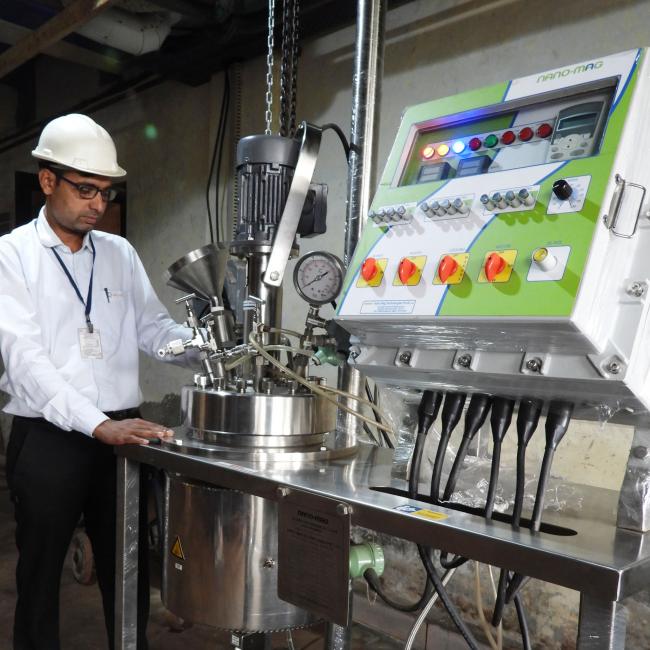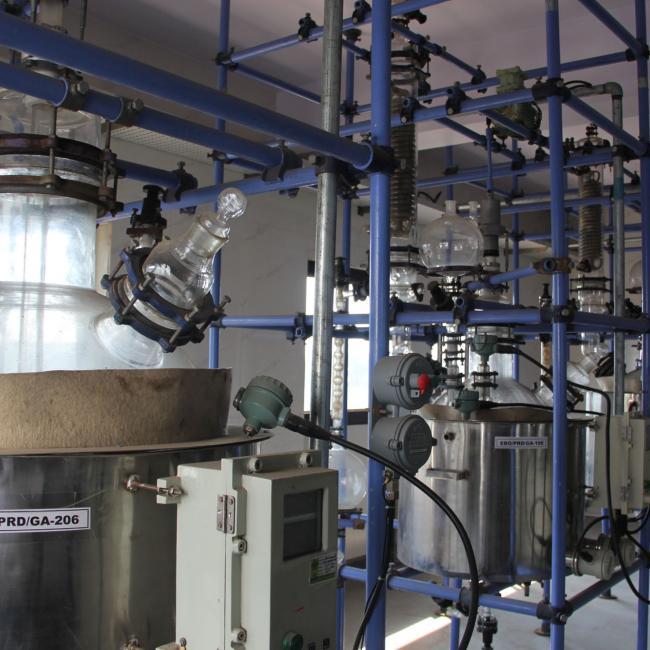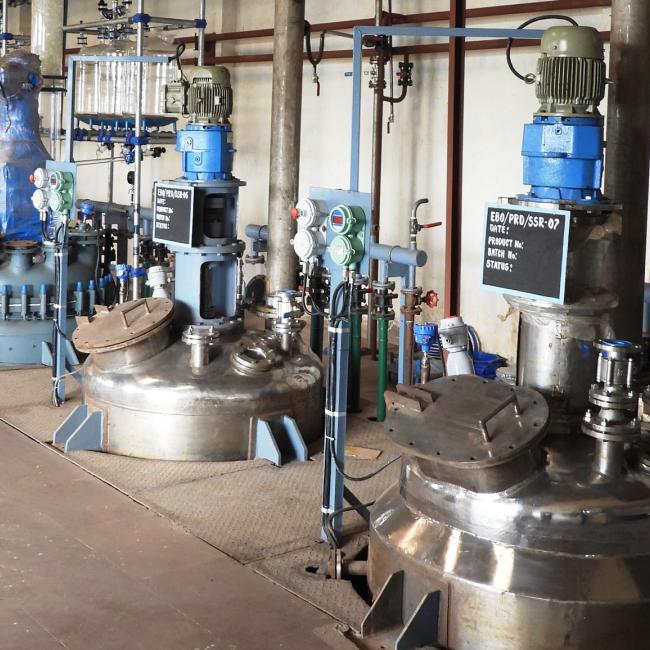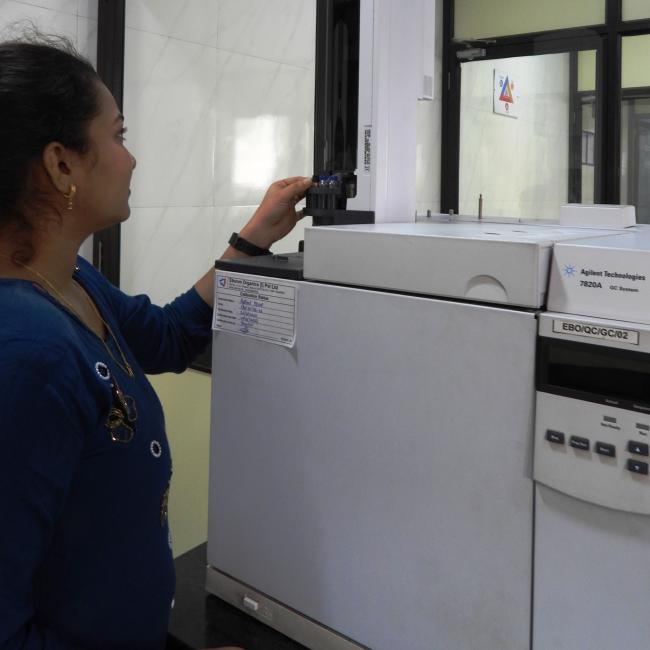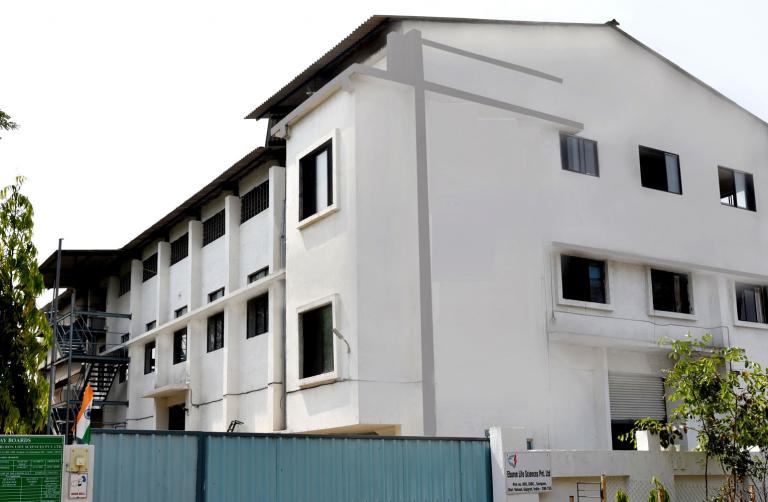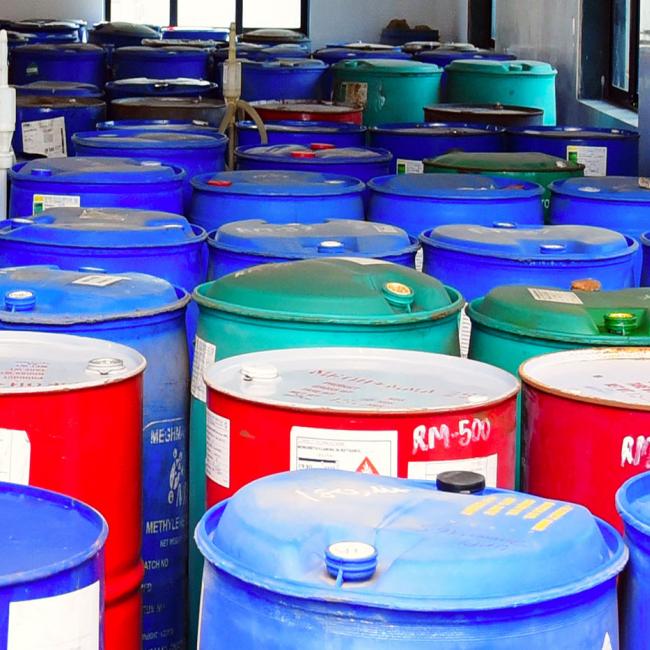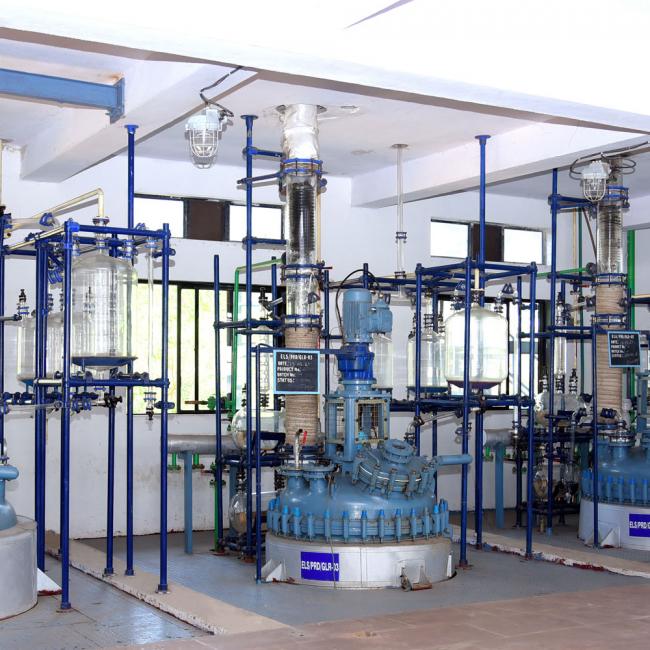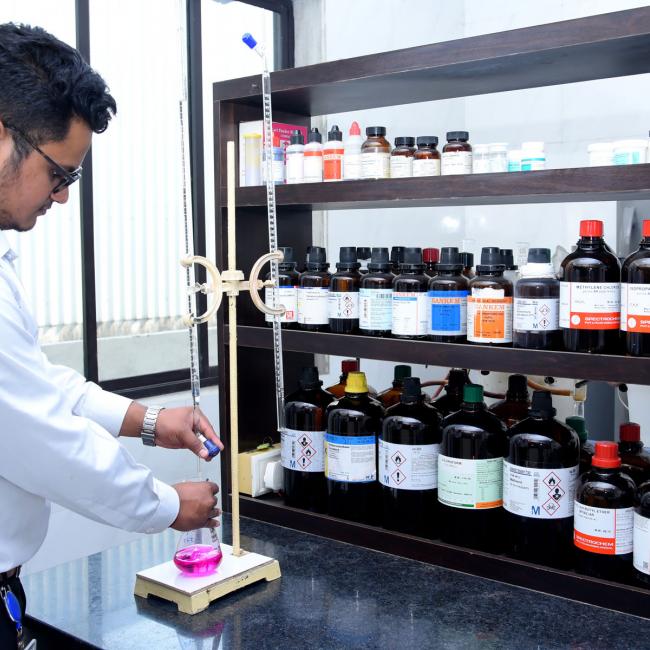Two production plants: Eburon Organics and Eburon Life Sciences
Both manufacturing facilities are well supported with appropriate supporting utilities such as:
- Filtration Equipment: Centrifuge, Nutsche filters, vacuum pumps, sparkler filters
- Post production equipment: Steam tray dryer, Vacuum tray dryer, Multimill, sieves, Blenders
- QC equipments like modern analytical equipments: HPLC (2), GC (5), IR apparatus, KF and Autotitrator, Microbalances and Wet laboratory
Eburon Organics, Vapi
R&D center and Kilo lab
- All Glass Assembly reactors : 20 L, 50 L, 100 L
- Temperature range : – 60 °C to +180 ° C
- SS 316 Hydrogenator : 2 L, 25 L,
Pressure up to 25 kg/cm2 and Temperature range – 5 ° C to +115 ° C - Classified area for intermediates to run parallel reactions and projects
- Necessary supporting equipments like filtration, drying, Vacuum Pumps , distillation assemblies etc.
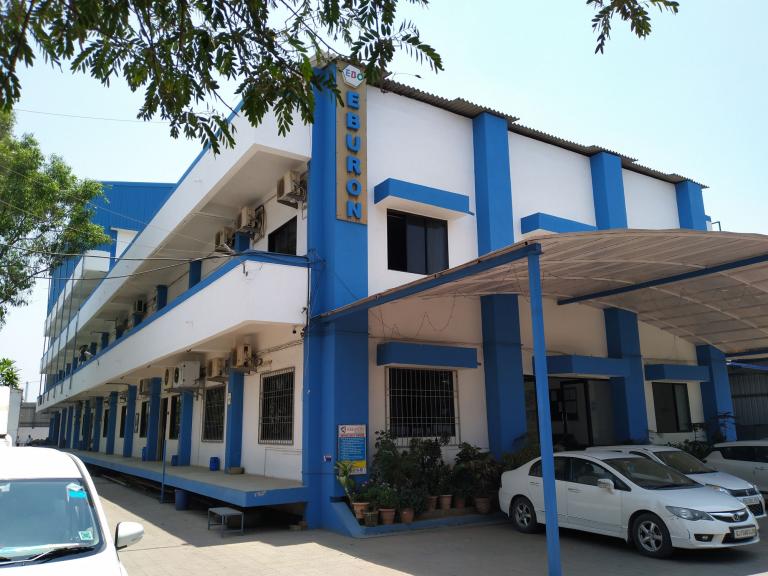
Production
- Over 10.0 KL of reaction volume consisting of over GLR reactors and Glass assemblies and SS 316 reactors with capacity ranging from 0.02KL to 2.5 KL
- Temperature range from -80 ° C to +180 ° C
Hydrogenation reactors
- Capacity : 2L, 20 L, 25 L, 350L
- Temperature range: – 5 ° C to +115 ° C
- Pressure up to 20 kg/cm
Reaction capabilities
- Claisen condensation
- Sandmeyer reaction
- Gabriël synthesis
- Vilsmeier-Haack reaction
- Michael addition
- Schiff base reaction
- Mannich reaction
- Wolff Kishner reduction
- Friedel-Craft reaction
- Grignard reaction
- Carboxylation
- Decarboxylation
- Addition reaction
- Aldol reaction
- Protection (BOC-, FMOC-, …)
- Deprotection
- Acetal formations
- Alkylation amination
- De-alkylation cleavage
- Acylation
- Hydrogenation
- Esterification
- Hydrolysis
- Catalytic reduction
- Condensation
- Polymerization
- Cyclisation
- Cyanation
- Diazotisation
- Coupling reaction
- Epoxidation
- Halogenation
- Dehalogenation
- Enzymatic reduction
- Nitration
- Oxidation
- Formylation


